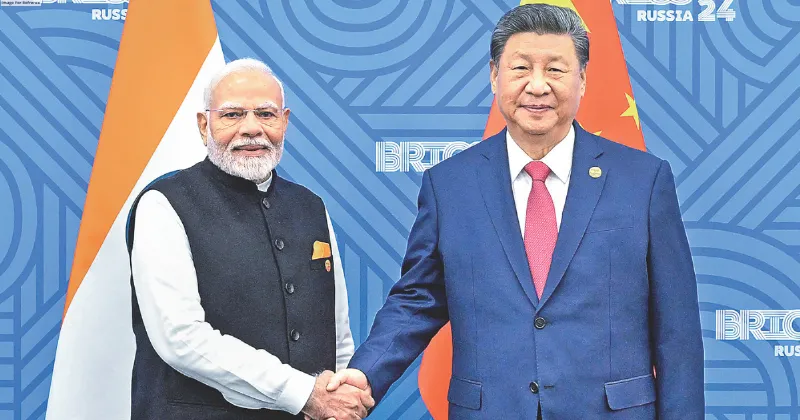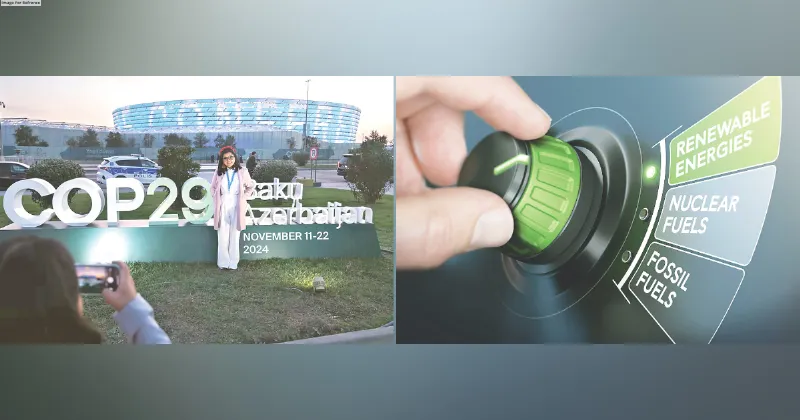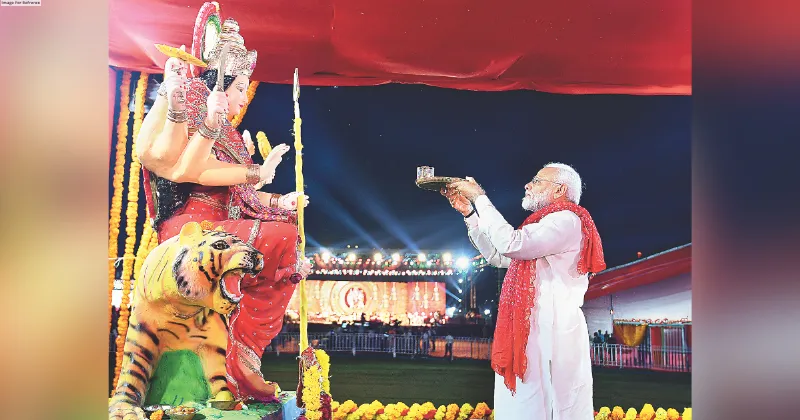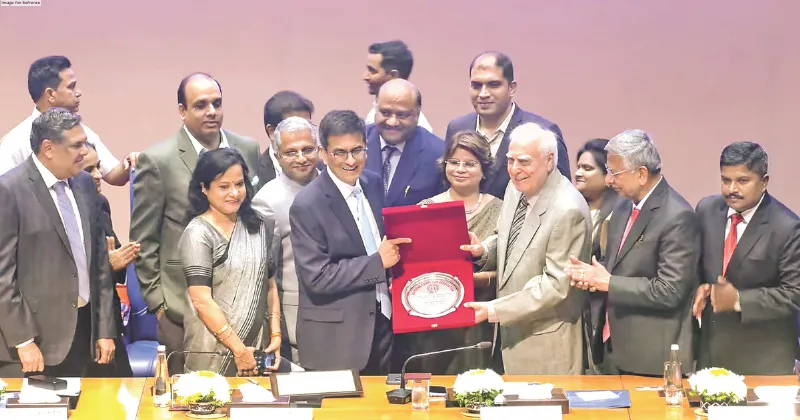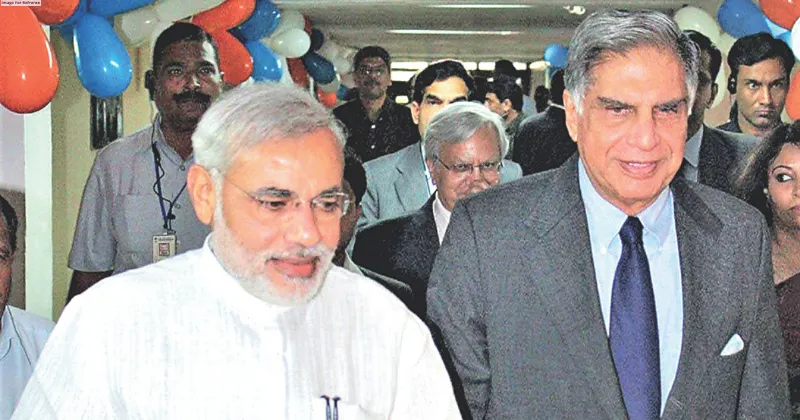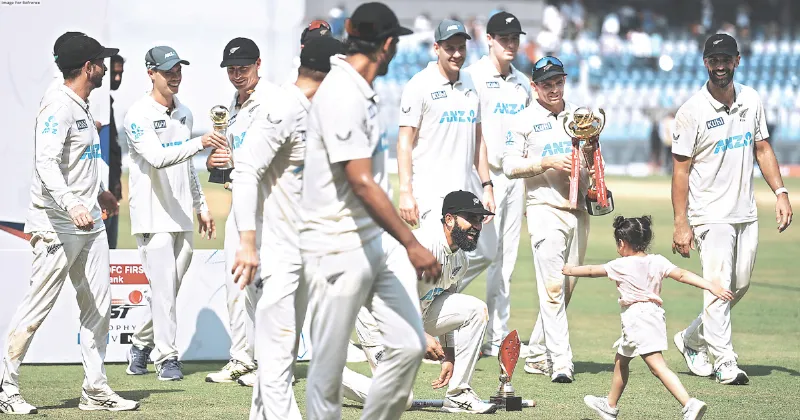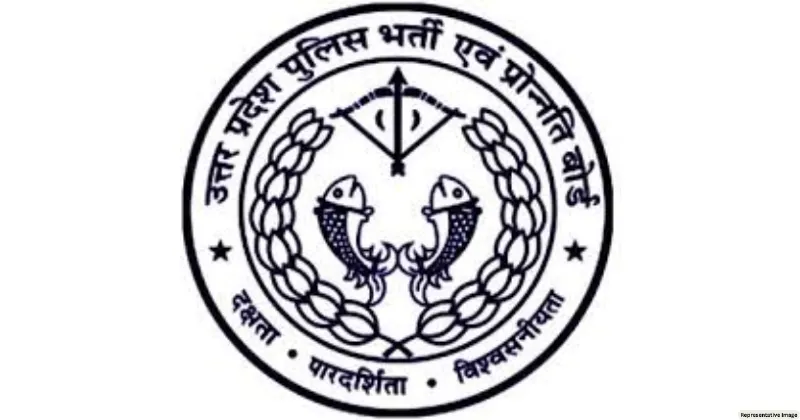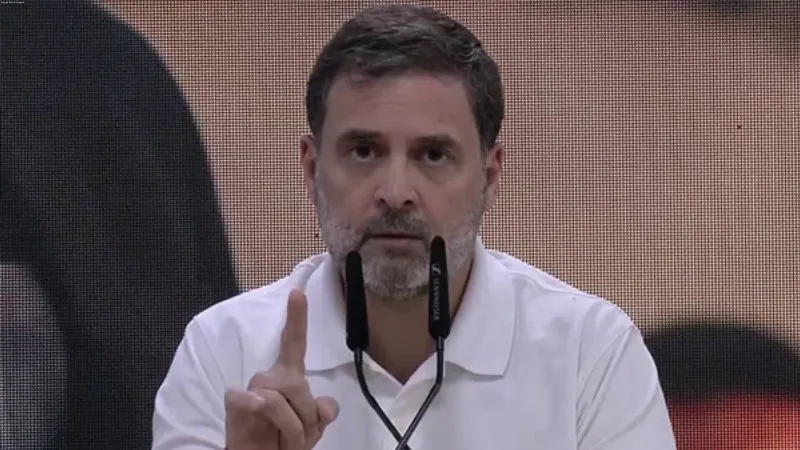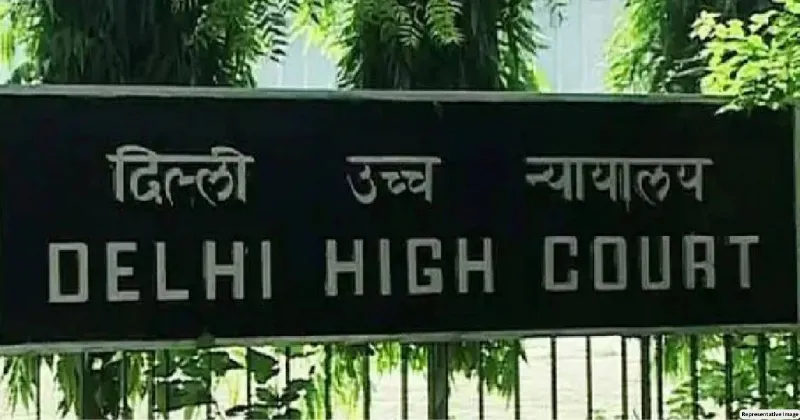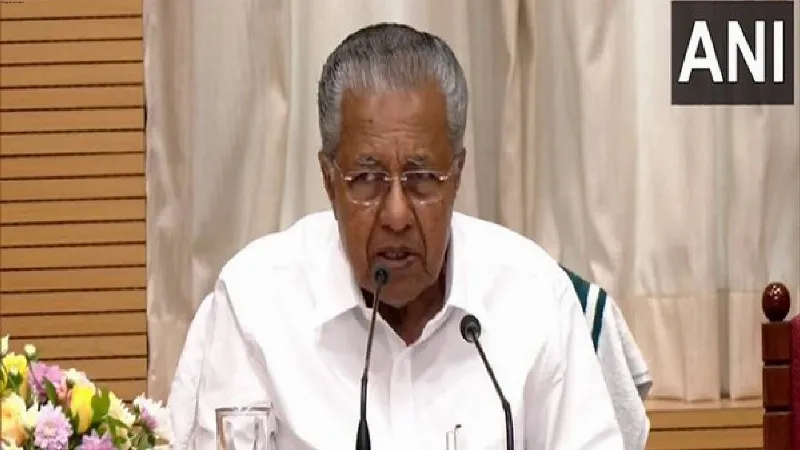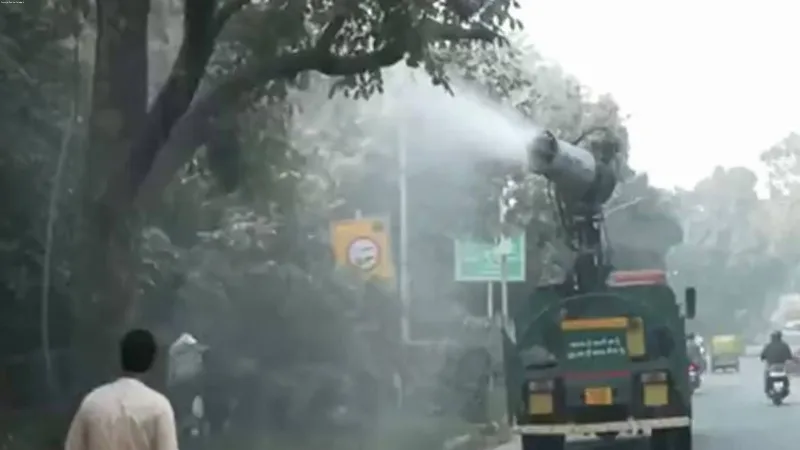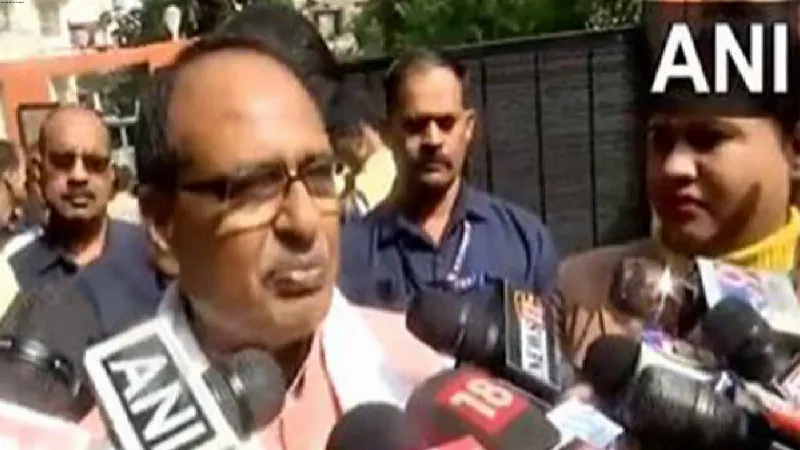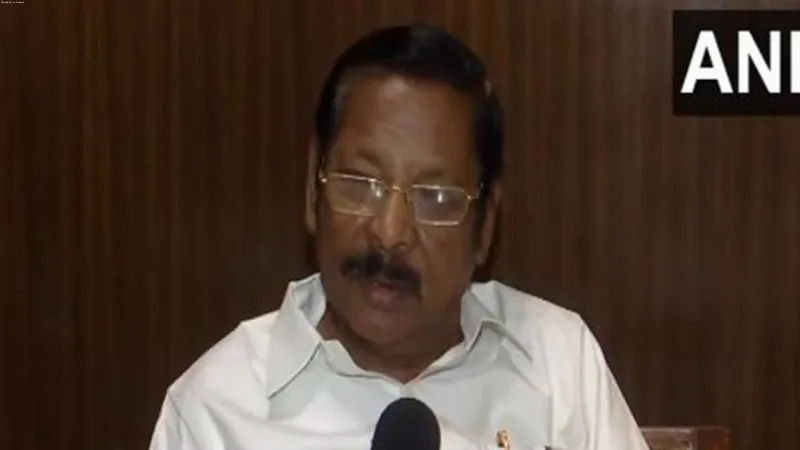Latest News
THE MODI EFFECT LEADERSHIP THAT DELIVERS
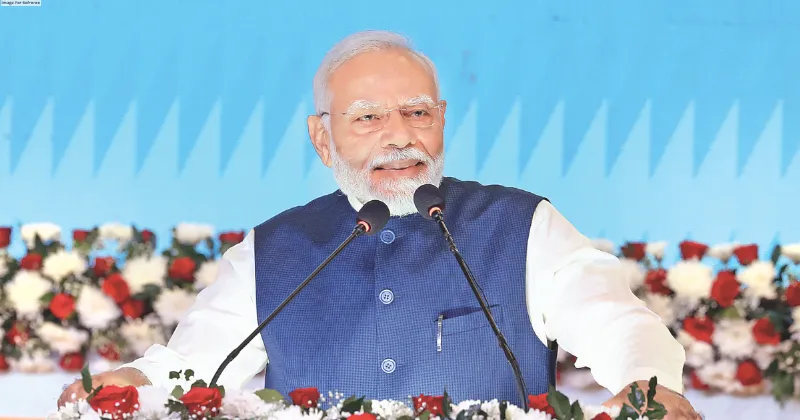
The narrators share that before becoming Gujarat’s CM in 2001, Narendra Modi travelled extensively as a BJP worker, listening to villagers’ problems. Modi also initiated several projects to address water challenges in Maharashtra. Despite his busy schedule, Modi is known for his remarkable memory, as well as warmth and sincerity he extends to others and lots more....
Narendra Modi’s visionary ‘Jyotigram Yojana’ transformed rural Gujarat - PK Pujari, Former IAS officer / Saurabh Patel, Former Minister for Energy, Gujarat
In 2006, Gujarat launched the revolutionary ‘Jyotigram Yojana,’ ensuring uninterrupted, high-quality, threephase power supply to all 18,000 villages across the state. Before Narendra Modi became Chief Minister of Gujarat in 2001, he had travelled extensively in rural areas of the state as a BJP worker, hearing firsthand from villagers about their struggles without reliable and sustained electricity supply. Power outages were common, affecting both daily life and local businesses. After taking office, Modi pledged to bring 24- hour electricity to every village, an ambitious goal amid nationwide power shortages. In rural Gujarat, power cuts were initially aimed at conserving electricity for farmers but ended up affecting entire villages. A single feeder line supplied both agricultural and domestic power, leading to frequent tripping when farmers drew extra power for irrigation, often through illicit connections. Chief Minister Modi’s solution was revolutionary: separate feeder lines for agricultural and residential purposes. This way, one line would provide eight hours of power for farming, while the second would offer continuous electricity for households and small businesses. At that time, engineers voiced concerns, saying the work was challenging, which would still take considerable time. However, Narendra Modi was resolute and insisted, ‘This reform has to happen across the whole of Gujarat’. And thus, the ‘Jyotigram Yojana’ was launched in 2006, and 18,000 villages began receiving 24-hour electricity. After his 2002 election victory, Chief Minister Narendra Modi called a meeting and asked the officials, ‘Where is the power reform you’ve been talking about?’ We then presented him with a new plan, noting that Gujarat’s electricity act dated back to 1902, from the time of Lord Curzon. Under Modi’s leadership, Gujarat passed the Electricity Act of 2003, which enabled a complete overhaul of the state’s power infrastructure. In that meeting, Modi directed, ‘Get this act ready within 90 days.’ Meeting this deadline was challenging, but Modi regularly reviewed the work and offered guidance. Our first meeting on the act took place in December 2002, and the new Gujarat State Electricity Bill was passed in March 2003— meeting the 90-day target. The Gujarat Electricity Board was divided into seven companies, making Gujarat the first state in India to carry out such comprehensive power sector reforms. When Narendra Modi first announced that Gujarat would provide 24-hour uninterrupted electricity to villages, many people ridiculed the idea, saying it was impossible. However, Narendra Modi proved them wrong by successfully implementing the ‘Jyotigram Yojana’ and delivering on his promise. The Chief Minister knew that the scheme will bring revolutionary transformation in Gujarat. He told us that this will help in opening more rural industries. Moreover, he highlighted that women would be able to operate more electronic gadgets like washing machines, water filters, mixers, water pumps etc, reducing their physical burden and save their time for more productive work. Small trades including those of blacksmiths, carpenters, flour mill owners etc. saw increased income, while it made a significant impact on women’s health. Modi said, “If we want to make Gujarat villages prosperous and reduce migration to cities, we must provide 24-hour electricity.” CM Modi also advocated dividing power distribution into regional companies, which reduced annual losses by nearly Rs 1,000 crore. Bureaucrats initially doubted the feasibility of the plan, but CM Modi’s unwavering trust in the scheme led to a huge transformation. The scheme was so successful that it caught the attention of APJ Abdul Kalam, then President of India, who attended the launch event near Vadodara in 2006. Kalam was astounded that all 18,000 villages in Gujarat had been electrified, with the installation of approximately 1 lakh kilometres of power lines and 20 lakh electric poles across the state. The scheme’s success brought a new wave of growth, setting a benchmark for rural electrification across India and turning Gujarat into a model for development. Today, Jyotigram’s legacy endures, illustrating how visionary leadership and strategic reforms can bring about transformative change in even the remotest parts of India.
Narendra Modi ji’s prompt action boosted Maharashtra’s readiness against droughts - Devendra Fadnavis, Deputy CM, Maharashtra
The drought of 2016, I believe, was no less than a tragedy. It was after many years that a drought of such large scale had struck us. There was literally no drinking water, agriculture was ruined. People were in deep distress during that time. I, as then CM of the state, sought the help of the Centre and went to meet Modi ji in Delhi. I requested Modi ji to provide assistance at this time of crisis but also find a long-term solution to the problem. I told him that we have several small irrigation projects in Maharashtra’s Marathwada and Vidarbha regions, which are half complete and deserved attention. I told him we don’t have funds to take up these unfinished projects and thin-spreading of resources by previous governments led to this. Funds were allocated here and there in bits and pieces and this led to a plethora of incomplete projects. Had these projects been completed, we could at least sustain even in no-rain or less rain scenario instead of suffering like this. Modi ji immediately took this up and instructed to prepare the project plan for at least 119 such incomplete irrigation schemes in the state. We told him that the government can provide 25 per cent grant to the state and the rest 75 per cent could be managed with loan. We told him that Maharashtra was financially and logistically a capable state and it would be able to handle this kind of an arrangement and repay the loans in time. The PM went out of the way to approve the project and so far we have been able to complete at least 80 of the incomplete projects. Today in case a drought strikes us, we will be able to sustain and stave off any largescale tragedy as we have been able to set up ample water storage facility now. It call came through because of the alacrity and involvement of PM Modi.
Surprised by Modi ji’s warmth and camaraderie - Dilip Joshi, Actor
The serial Taarak Mehta ka Ooltah Chashmah was at its peak in 2008 as it hit homes across India that year. It was in 2019, a year after the sop had become a TV rage, that a small event was organised in Ahmedabad by the writer of the story in which Modi ji was invited as chief guest. A book by the author was to be launched by then state CM Narendra Modi, and he was supposed to be there in attendance for only a few minutes. We actors were set to perform an act for 40-45 minutes on stage. But Modi ji, once he arrived, became a part of the Taarak Mehta family and mingled with all of us like our very own. He stayed on for quite some time, beyond his schedule, just to be with us and share his warmth and camaraderie. About two years later, in 2011, I had another opportunity to meet Modi ji in Ahmedabad. The event was Sadbhavna Mission and we were to meet him on stage by turn. In the meantime, I had shed some weight in those two years. As soon as I was in front of him, he recognised me immediately and said, ‘Arre Jethalal, wajan ochu karu che?’ (hey Jethalal, are you losing weight?) I was surprised by this remark. How could a man, who meets lakhs of people daily and remains occupied with so much work, remember what I was like two years back? He could instantly recall that I was plumpier in 2009 and had reduced some extra flab by 2011. This is remarkable and shows not only his sharp memory but also the depth and sincerity of his warmth and camaraderie despite being such a busy leader.
COMPILED AND EDITED BY SHASHIKANT SHARMA

